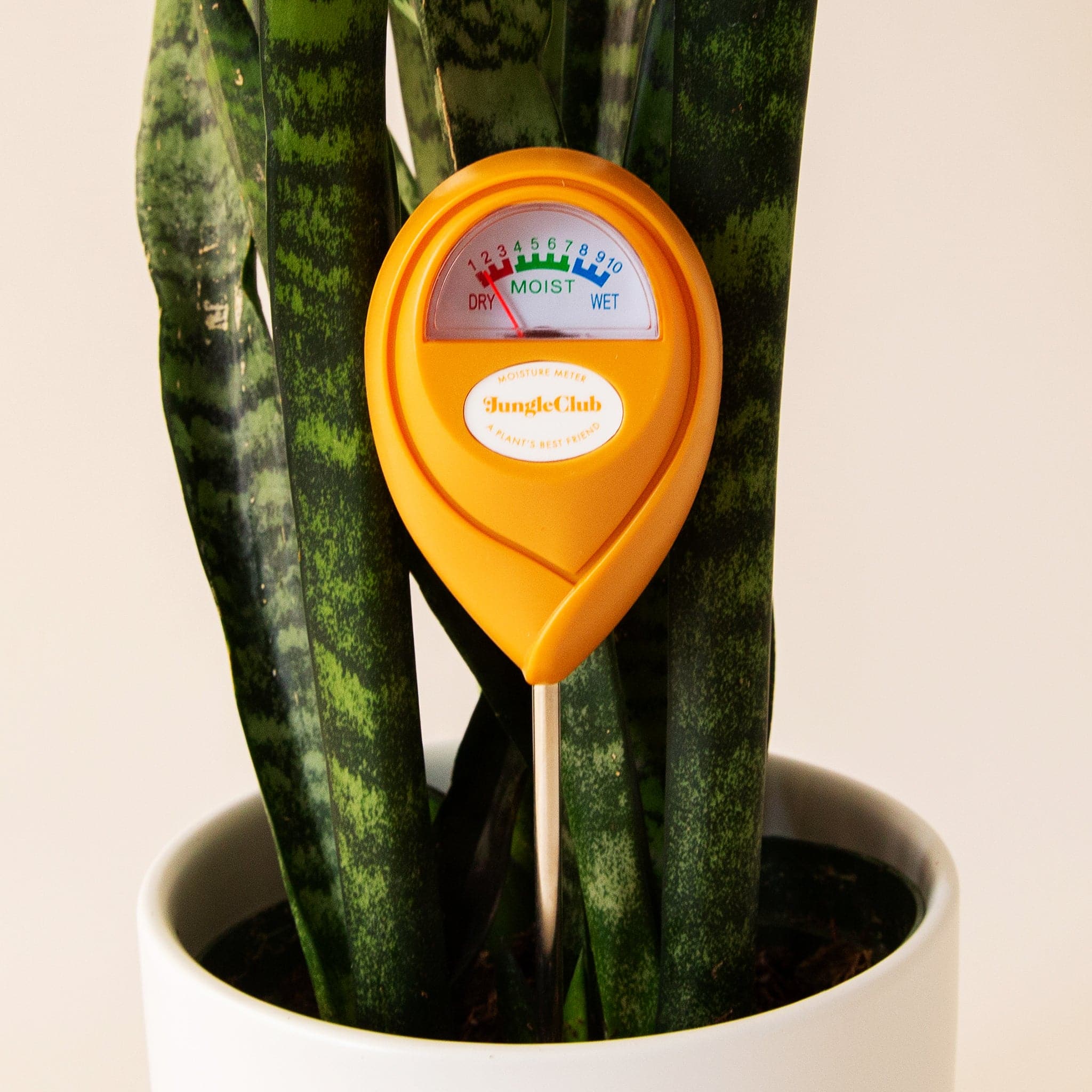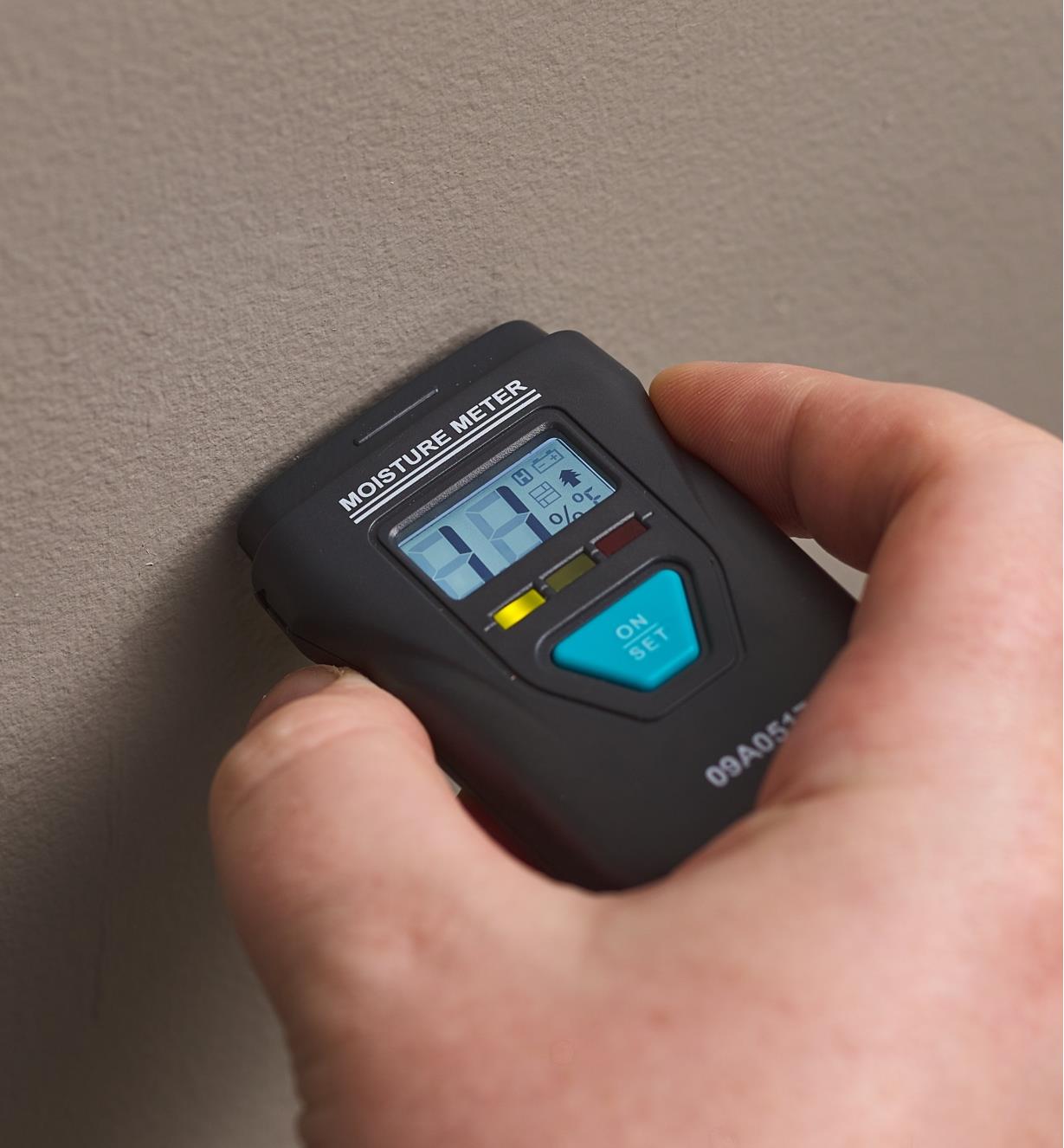The Ultimate Guide to Dampness Meters: A Comprehensive Review and Exactly How They Can Conserve You Money
In the realm of structure maintenance, building, and different sectors, the significance of properly gauging wetness degrees can not be overstated. Moisture meters serve as essential tools in finding and checking moisture material in materials, assisting in stopping expensive damages and ensuring the top quality of products. Understanding the nuances of various kinds of moisture meters, their applications, and the potential cost-saving benefits they provide can be a game-changer for experts and organizations alike. Uncovering just how these devices can not just simplify procedures however likewise contribute to economic cost savings is a journey worth getting started on.
Kinds Of Wetness Meters
One typical kind is the pin-type moisture meter, which measures the electric resistance between two pins put right into a product. Pinless moisture meters, on the other hand, usage electromagnetic sensing unit plates to check a bigger location without triggering damages to the material's surface area.

Moreover, there are also specialty dampness meters designed for particular products like grain, soil, or hay. These meters supply exact dampness readings customized to the one-of-a-kind residential properties of the product being examined. Infrared moisture meters determine the thermal buildings of a material to determine its dampness web content non-invasively, making them valuable for applications where pin or pinless meters may not be suitable. Recognizing the different kinds of moisture meters readily available can aid industries choose one of the most appropriate tool for their details wetness dimension needs.

Advantages of Using Moisture Meters
Wetness meters supply invaluable advantages in precisely monitoring and analyzing moisture degrees in diverse products and environments. One of the key benefits of utilizing wetness meters is the prevention of potential damages caused by excess wetness.
In addition, using wetness meters can lead to enhanced energy efficiency. In agricultural setups, dampness meters play an essential duty in enhancing plant yields by enabling farmers to monitor dirt moisture levels and make educated watering decisions.
Just How to Choose the Right Dampness Meter
Picking the proper wetness meter entails taking into consideration key elements such as product compatibility, measurement array, and calibration precision. When picking a wetness meter, it's necessary to make certain that the meter is appropriate for the certain material you will be screening. Various materials have varying electric buildings that can affect wetness readings, so picking a meter developed for your product is crucial for exact results. Furthermore, take into consideration the dimension series of the wetness meter. Make sure that the meter can discover moisture degrees within the array required for your applications. Calibration accuracy is another vital aspect to remember. Go with a wetness meter with reputable calibration to make sure exact and constant analyses. Some meters may require periodic calibration adjustments, so understanding the calibration process is essential. By carefully evaluating these factors, you can pick a dampness meter that satisfies your requirements and offers accurate dampness dimensions for your jobs.
Proper Strategies for Wetness Meter Usage

Expense Financial Savings Through Dampness Meter Applications
Just how can the critical application of dampness meters cause considerable cost financial savings throughout different industries? Dampness meters play an important role in expense financial savings by avoiding possible damage and making certain click resources quality control in different fields. In the farming sector, moisture meters aid in establishing the optimal time for collecting crops, stopping excess or over-drying dampness that can affect the end product's high quality. This accurate monitoring assists farmers prevent unneeded losses and optimize their return.
Likewise, in building and construction, moisture meters aid avoid costly problems by spotting moisture degrees in structure materials, such as timber or concrete, which can lead to structural problems otherwise dealt with without delay. By identifying issue locations at an early stage, service providers can take corrective actions to prevent extensive repair services or replacements, eventually conserving time and cash.
Additionally, in the food processing industry, wetness meters are essential for keeping an eye on item quality and guaranteeing compliance with safety and security laws. By properly gauging moisture content in food, makers can stop perishing, keep quality, and lower waste, resulting in considerable expense savings. Generally, the critical application of dampness meters is a beneficial financial investment that can bring about considerable expense decreases and enhanced effectiveness across different industries.
Conclusion
To conclude, dampness meters are valuable devices for gauging and identifying dampness degrees in different products. By making use of visit this website the appropriate wetness meter and complying with appropriate techniques, users can properly protect against expensive problems brought on by excess wetness. Buying a quality dampness meter can cause substantial price financial savings over time by recognizing potential concerns beforehand and making it possible for punctual removal. Ultimately, moisture meters are essential tools for preserving the honesty and durability of frameworks and products.
Dampness meters serve as indispensable tools in detecting and monitoring moisture material in products, aiding in protecting against costly damages and making certain the quality of items. Infrared dampness meters measure the thermal properties of a material to identify its dampness content non-invasively, making them beneficial for applications where pin or pinless meters might not be suitable.Dampness meters offer indispensable benefits in properly evaluating and keeping an eye on wetness degrees in varied products and settings. In agricultural settings, moisture meters play a vital duty in maximizing plant yields by enabling farmers to keep track of soil wetness degrees and make notified watering choices.In final thought, dampness meters are important devices for detecting and determining dampness levels in numerous products.